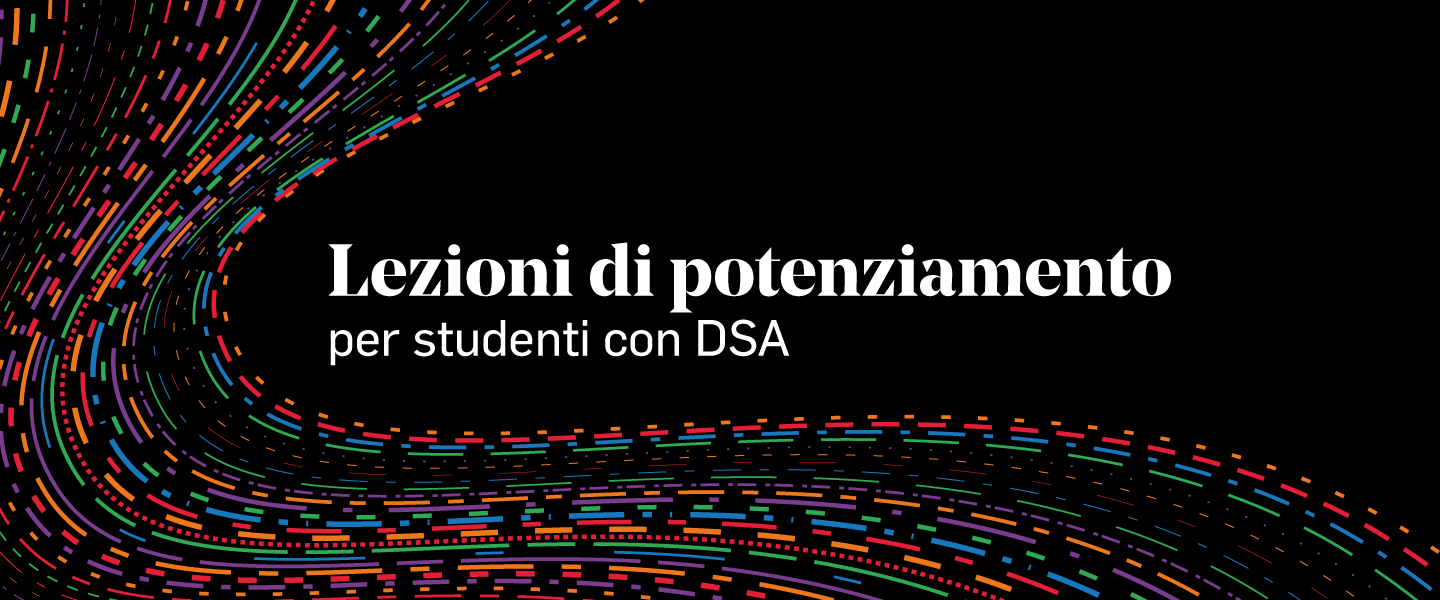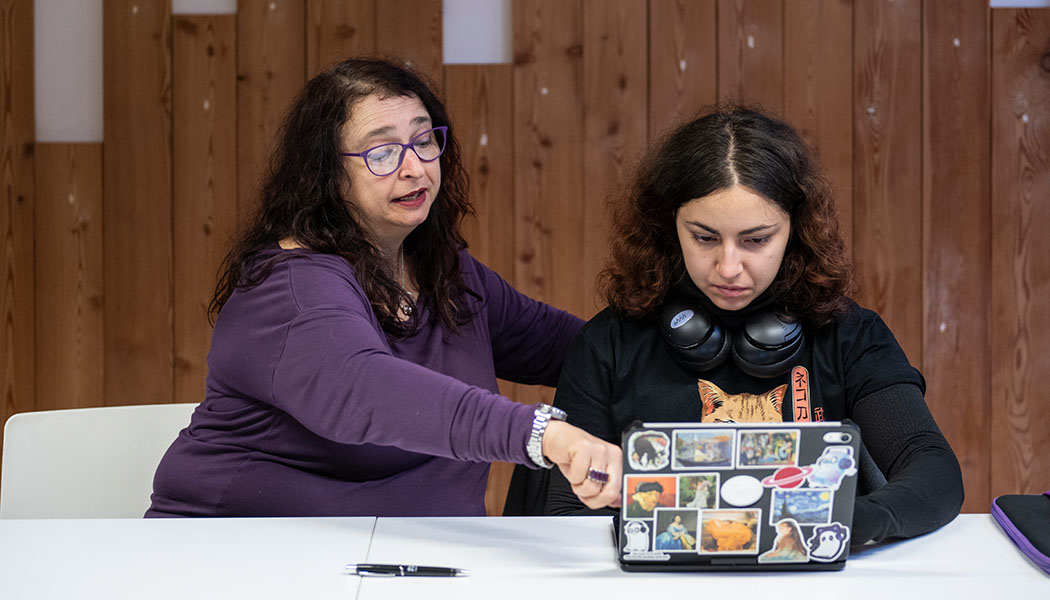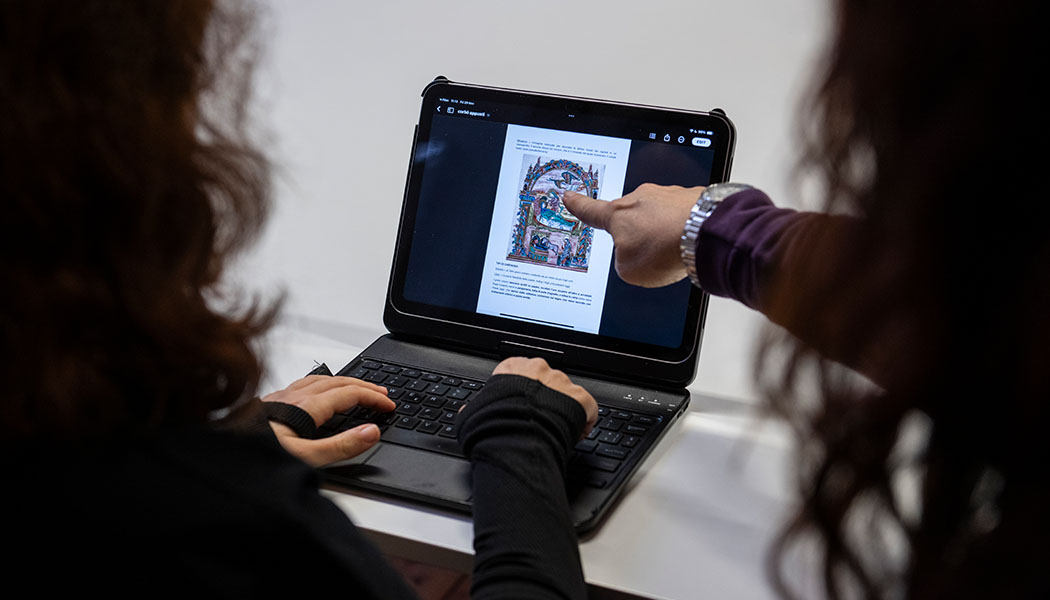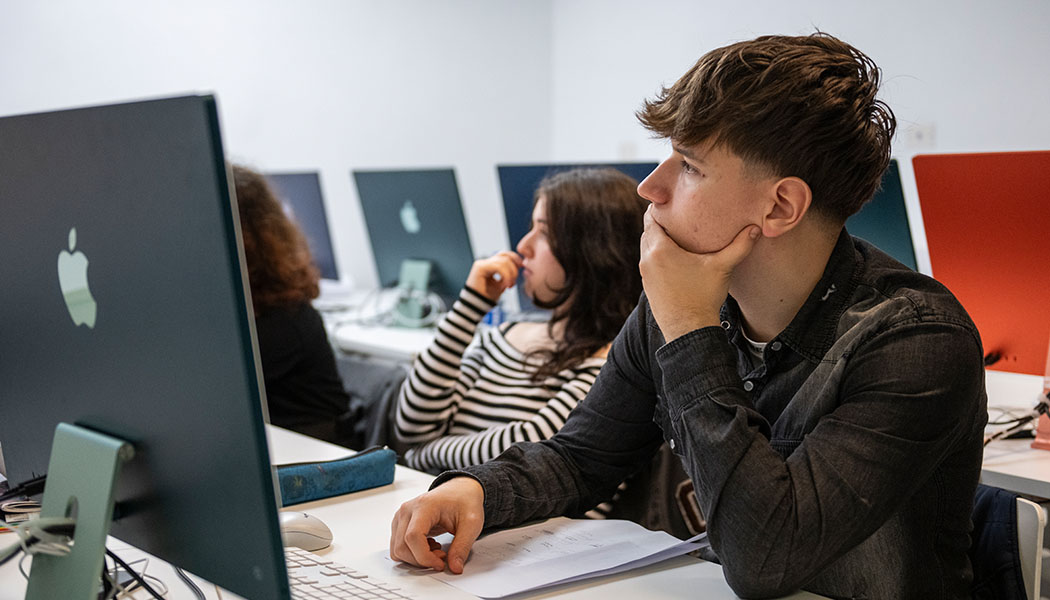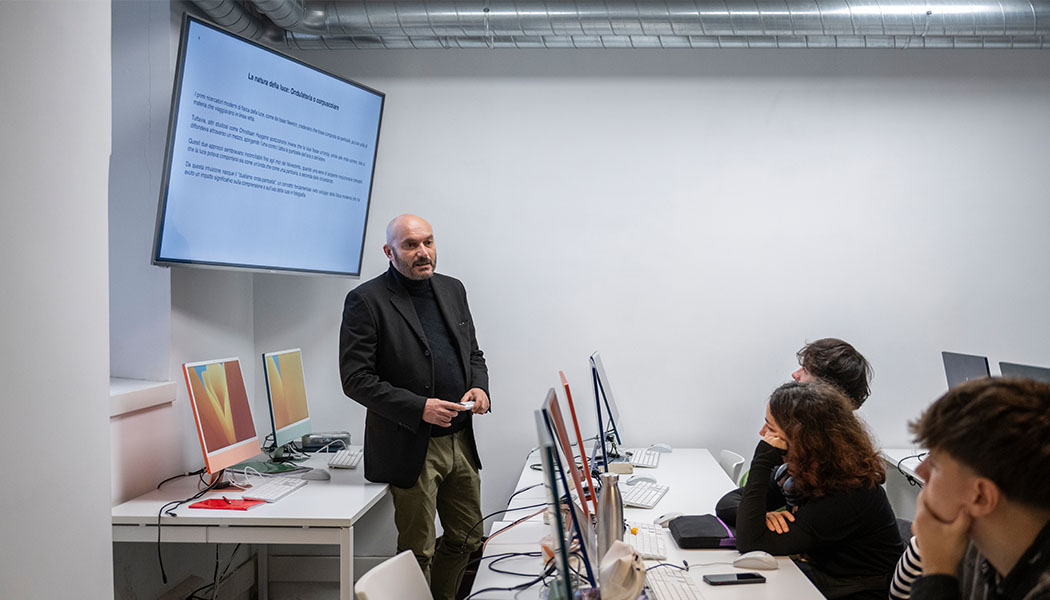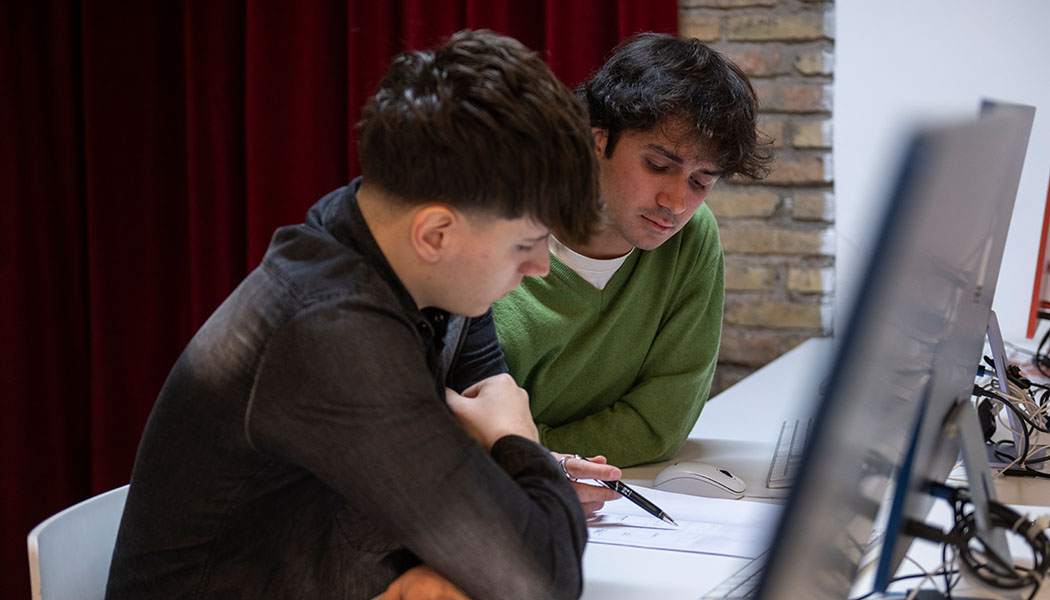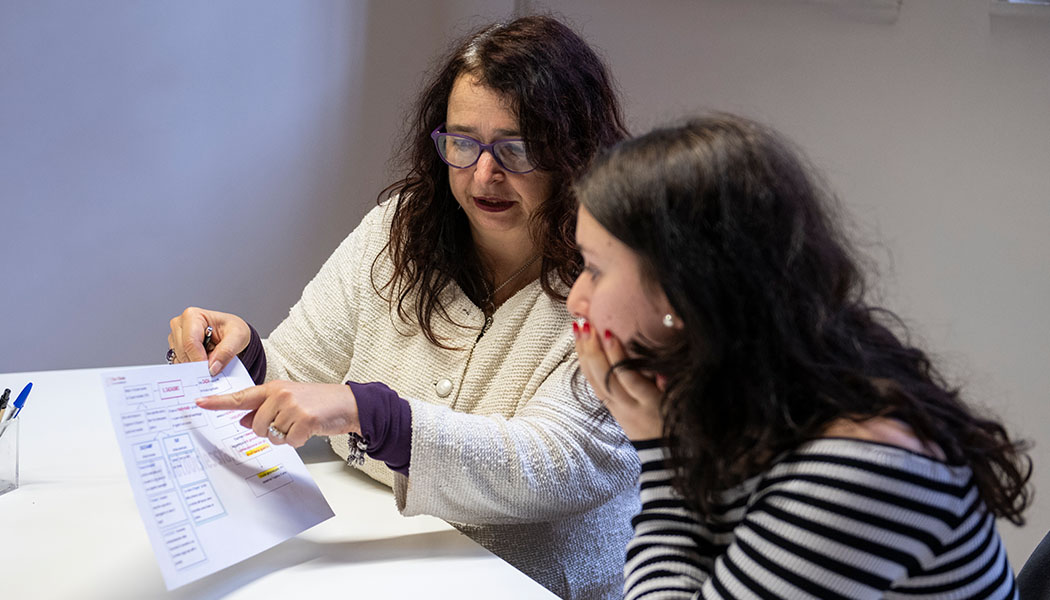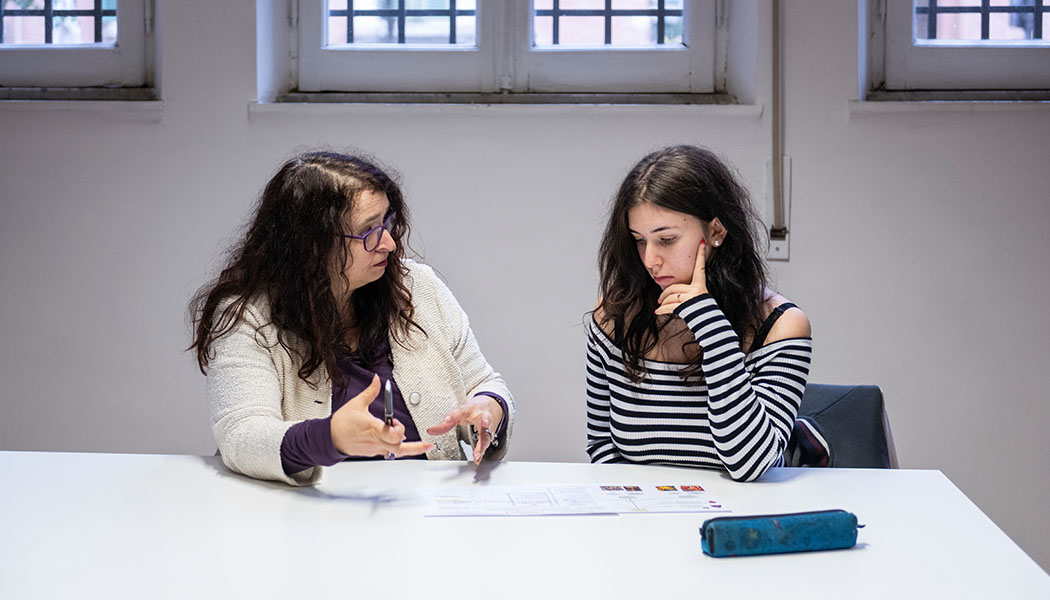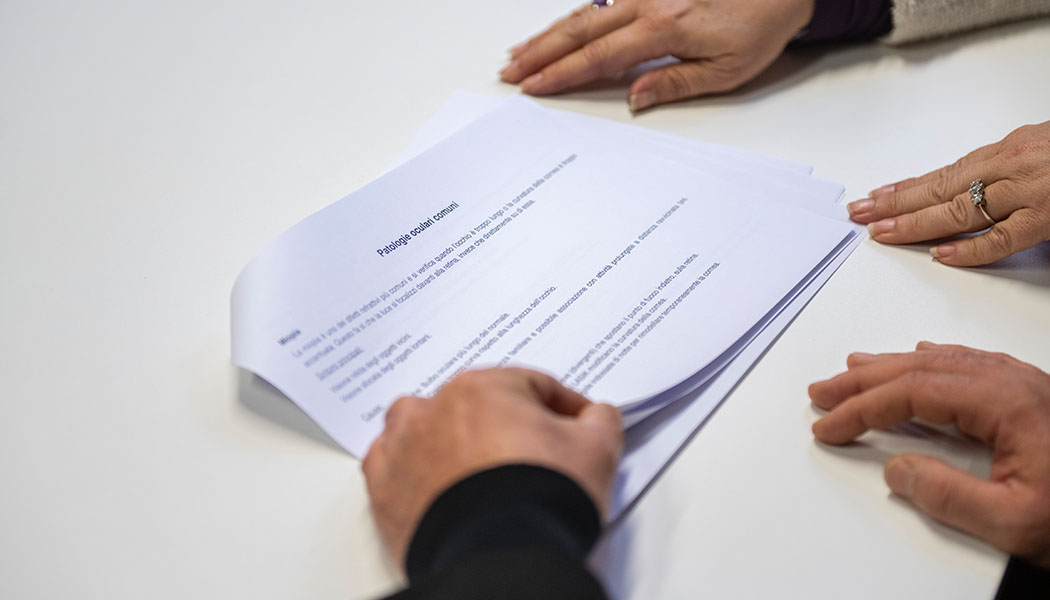As part of the services provided to support students, RUFA has dedicated special attention to those who deal daily with the so-called “Specific Learning Disorders”, commonly referred to by the acronym SLD. Students with SLD face a heterogeneous set of difficulties that can impact the acquisition, organization, memorization, understanding, and use of verbal and non-verbal information. Acknowledging that students with SLD often need more time to organize their study, take notes, read, or write texts, RUFA has implemented certain measures that allow the use of tools and support to effectively tackle their academic journey.
Specifically, the following measures are available:
❯ Clear, concise, and well-organized study material;
❯ Additional time to consolidate knowledge;
❯ Advance knowledge of the study program, bibliography, calendar, and deadlines;
❯ Use of compensatory tools and exemption measures as provided by law;
❯ Knowledge of how in-progress and final exams will be conducted;
❯ Constant dialogue with the teacher/tutor.
Starting from May 2023, RUFA established a service of “enhancement lessons” specifically for so-called “theoretical” subjects, where students with SLD or ADHD experience greater difficulties.
Students eligible for this service are those with an SLD diagnosis submitted to the SLD Office, as well as students with disabilities under Law 104/92 that result in an SLD, who have consented to inform their teachers.
These students will have the opportunity to attend enhancement lessons, either individually or in groups (based on requests), by appointment with the Head of the Service, Dr. Paola Lancellotti, both in preparation for exams and throughout the Academic Year.
The lessons aim to:
❯ Help each participating student develop a method to identify the components of the program and divide it into shorter sections;
❯ Once the sections are identified, highlight the essential ones using markers, write keywords in the text margins, and simplify terms for easier memorization;
❯ Create concept maps, written summaries, visual schemes, etc., using their study material (textbooks, handouts, notes, etc.) to bring to exams;
❯ Practice oral repetition with maps to train memory using the same tools.
It is well known that a specific learning disorder, such as working memory impairment, reading comprehension difficulty, or attention deficit, makes acquiring knowledge particularly challenging without proper visual/conceptual support.
The goal of the enhancement lessons is to provide work strategies that enable students to work independently without external support, as well as study methods applicable autonomously, even in technical/practical subjects.
The approach will undoubtedly start from the strengths of each student, such as their verbal comprehension level (given by the VCI index in their diagnosis), to assess their listening and recall capabilities for previously learned information, as well as their oral expression skills. Additionally, their level of visual-perceptual reasoning (indicated by the PRI index in the diagnosis) will be observed.
The methodology used with each student will be based on the content of their diagnosis, highlighting their specific difficulties. These characteristics help evaluate the student’s ability to work with visual content, organize it, and develop reasoning skills. For some students, it is necessary to provide “deadlines” and “study rhythms,” as they often struggle to manage their time in preparation for exams (especially students with ADHD).
Students who request assistance will be supported both during their exam preparation and after, through additional lessons tailored to their learning difficulties. The “Guidelines for the right to education of students with Specific Learning Disabilities” adopted by RUFA represent a continuously evolving document that is updated thanks to the contributions and suggestions of those directly involved.
The support desk for students with disabilities, specific learning disorders (SLD), and special educational needs (SEN) is available at the following times:
Tuesday from 4:00 PM to 6:00 PM – Via Libetta, Meeting Room (by appointment only)
Thursday from 9:00 AM to 10:00 AM – Via Benaco 2, Meeting Room
Friday from 2:00 PM to 3:00 PM – Via Benaco 2, Meeting Room
For more information or to make an appointment, contact:
Disability, SLD, and SEN Office – segreteriasdd@unirufa.it
Director’s Delegate for Disability, SLD, and SEN – luigi.iacobelli@unirufa.it
